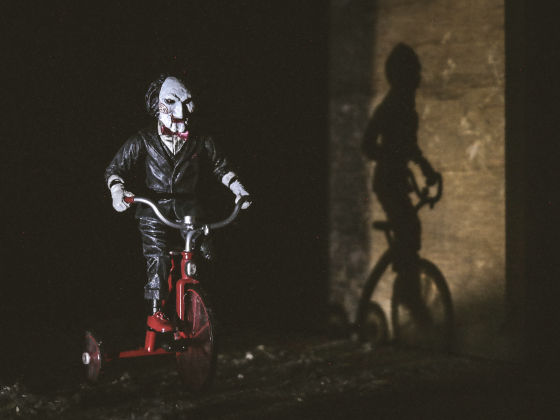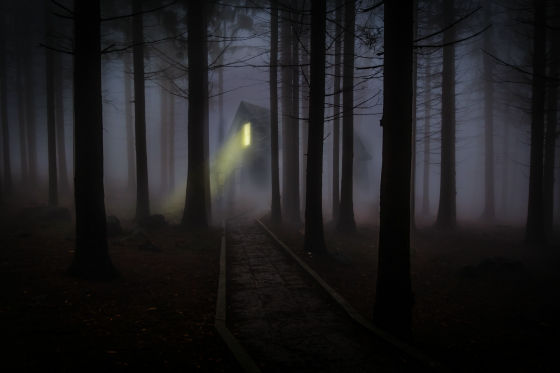Fear experiences such as horror movies and haunted houses have the same merit as 'mindfulness meditation' and 'difficult challenge'

by Amber_Avalona
Margee Kerr, a sociologist at the University of Pittsburgh who has been researching over the past ten years that "Why do people pay for scaring?" Margee Kerr, a sociologist at the University of Pittsburgh, conducted a "fear experience" Has shut down the brain and has the same effect as when mindfulness meditation is announced.
Voluntary arousing negative experiences (VANE): Why we like to be scared.
http://psycnet.apa.org/doiLanding?doi=10.1037%2Femo0000470
Why is it fun to be frightened?
https://theconversation.com/why-is-it-fun-to-be-frightened-101055
When feeling fear or being surprised, many chemical substances including adrenaline are released in the body. Such " fighting or escape or reaction " is an important reaction to make human beings alive, it also applies to the state of "high". Margee Kerr explained that the person wants to "scare himself" despite fighting or escaping or referring to the reaction, there are other factors.
Mr. Kerr has collected data using a haunted house together with Greg Siegle, a cognitive neuroscientist at the University of Pittsburgh for the past two years.
Two researchers have set up attraction "for adults" rather than family haunted house like light, sound, animated character. The subject was surprised, caught and actively stimulated by the actor.

by Jose Francisco Morales
Before entering the haunted house, 262 people who became subjects answered a questionnaire about their emotions and expectations. After that, the questionnaire was carried out even after coming out of the haunted house.
Furthermore, 100 subjects were asked to perform various cognitive tasks and emotional tasks in 15 minutes after entering / entering the haunted house, and the activities of the brain were examined with a portable electroencephalograph .
As a result, subjects experienced a remarkable feeling of elevation, anxiety and fatigue reduction after experiences of a haunted house. In addition, the feeling of happiness after the haunted house is related to the "intensity" and "fear" reported by the subjects, and if you are afraid, you feel better as you are afraid. Furthermore, the subject reported "I learned about myself" and "I tried personal fear".

by werner 22 brigitte
And, with the electroencephalograph, those before entering / entering the haunted house, the activity of the brain has declined over a wide range, and it was also found that the brain is shut down. Such a condition is also seen in people trained in mindfulness meditation and is believed to be related to "goodness of mind".
Together, Mr. Kerr challenges the 5 km race and difficult climbing walls from the viewpoints of "anxiety" "physical effort" "pushing your back" "final achievement" experience of the haunted house It is said that the same effect as that of.
Of course, people seeing horror movies or entering haunted houses understand that they are fakes. But once you get into that world, fear will be real, you will feel satisfaction and a sense of accomplishment when you leave the haunted house safely. Mr. Kerr says that by experiencing fear in a safe place, people can observe their reactions and changes in the body and can know themselves more.

by Kal Loftus
And, although you should not force people who are not passionate about your experience of fear, but as you agree and see some horror movies with someone else or entering a haunted house, the emotional experience becomes more intense, It will also strengthen social connections.
Related Posts:
in Science, Posted by darkhorse_log







